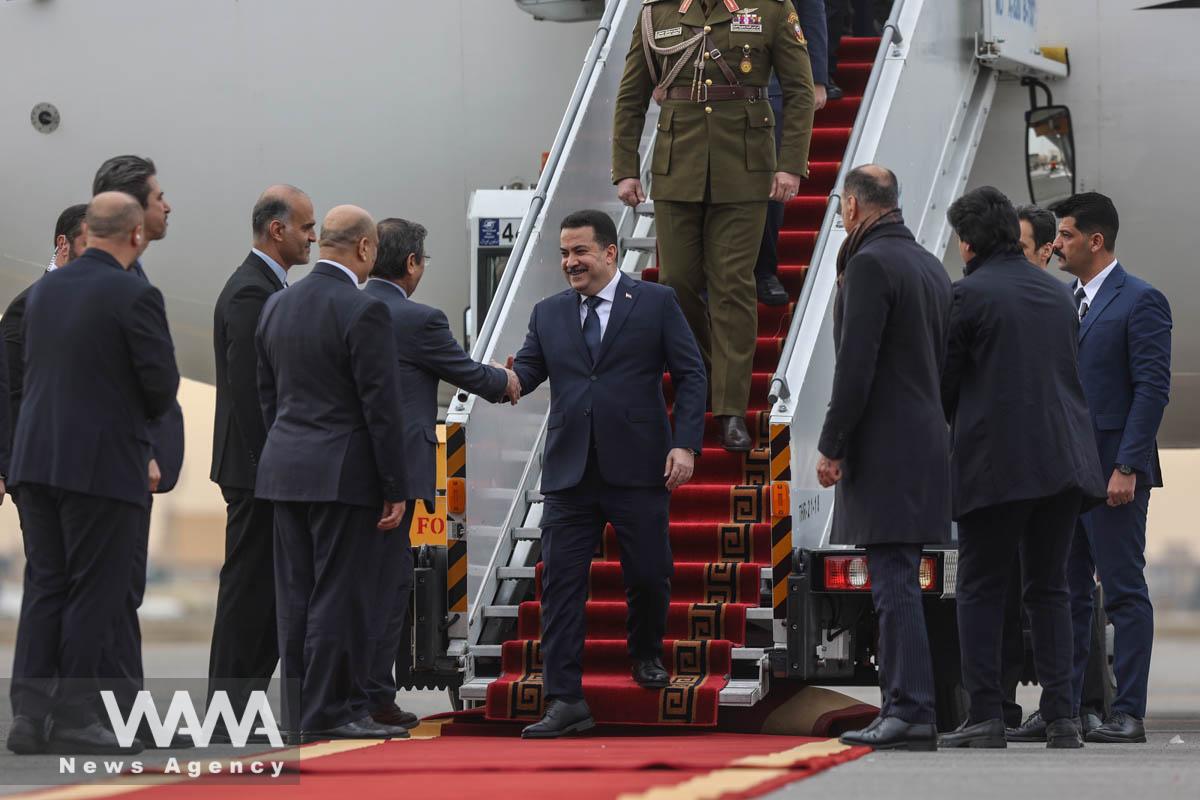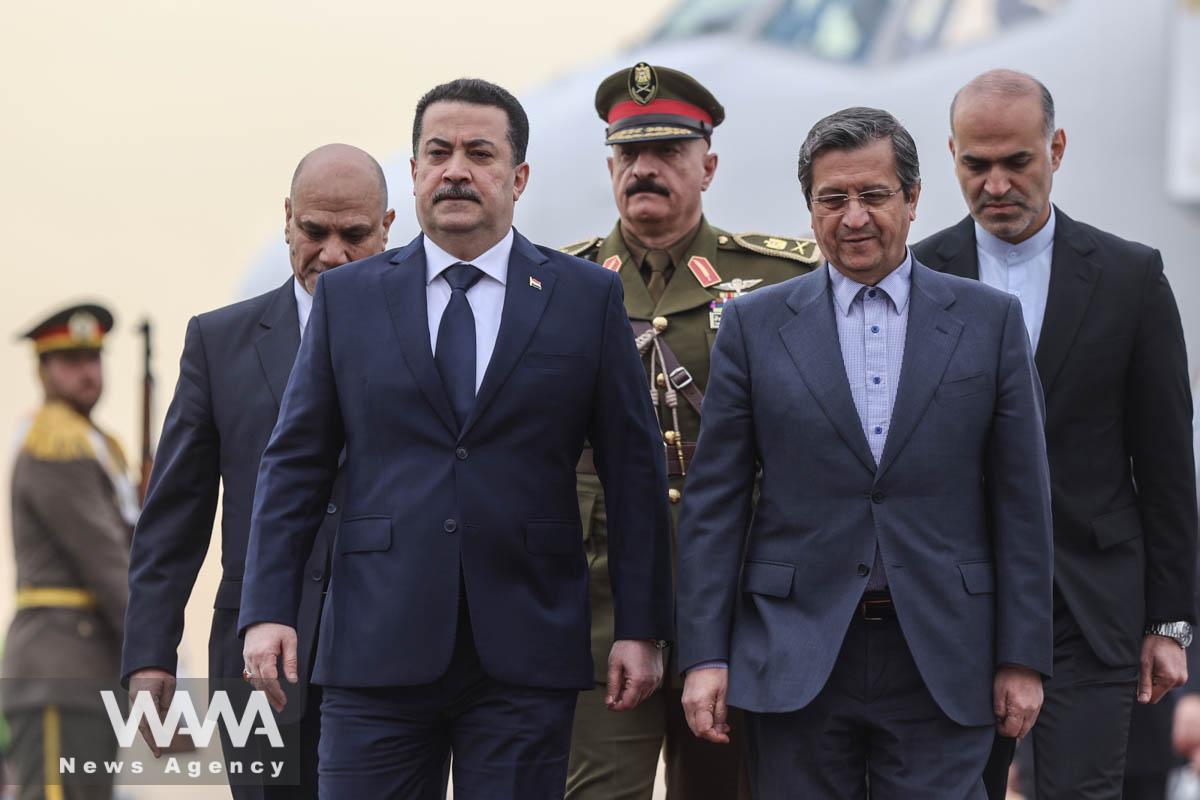Tehran and Baghdad: On the Path to Strengthening Cooperation
WANA (Jan 08) – Tehran and Baghdad, as neighboring countries with deep cultural and historical ties, hold significant advantages for each other, making the expansion of their bilateral cooperation both attractive and essential.
In this context, the visit of Iraqi Prime Minister Mohammed Shia’ Al-Sudani to Tehran could serve as a pivotal step in continuing the agreements initiated during the recent visit of the Iranian President to Baghdad. This comes despite ongoing external pressures on the Iraqi government, though the country has so far managed to resist such interventions effectively.
The Importance of Al-Sudani’s Visit to Tehran
Al-Sudani’s visit to Tehran is significant from various perspectives. Following his meetings with officials in Jordan and Saudi Arabia, the Iraqi Prime Minister has now arrived in Iran to not only follow up on previous agreements but also to discuss sensitive regional developments, particularly the evolving situation in Syria and the political changes in Damascus.

Iraqi Prime Minister Mohammed Shia al-Sudani arrives at Mehrabad Airport in Tehran, Iran, January 8, 2025. Majid Asgaripour/WANA (West Asia News Agency)
Given the recent developments in Syria and the security concerns surrounding Iraq’s borders, this visit could play a decisive role in addressing challenges and seizing opportunities in the region.
Regional Concerns
A key issue discussed during this visit is the shared concern of both nations over the resurgence of terrorist groups like ISIS. With Iran’s critical role in liberating various parts of Iraq from ISIS’s control, Al-Sudani aims to foster greater coordination with Iran to counter emerging security threats. Additionally, specific concerns surrounding the Al-Bukamal region, tied to U.S.-backed Kurdish forces, have added to Baghdad’s apprehensions.
Economic Cooperation Priorities
Iran and Iraq enjoy extensive economic ties, from Iran supplying electricity and fuel to Iraqi power plants to trade in diverse sectors. The significance of these interactions is so substantial that Iraq has made considerable efforts to secure exemptions from U.S. sanctions against Iran, as disruptions in this relationship could lead to serious social, economic, and security challenges for Iraq.
Beyond energy issues, the Iraqi government is keen to use its cooperation with Iran to withstand regional competition and preserve the benefits derived from this partnership for its people.

Seven Points About Masoud Pezeshkian’s Trip to Iraq
WANA (Sep 14) – Masoud Pezeshkian visited four important locations during his trip to Iraq: Baghdad, Sulaymaniyah, Erbil, and Basra. In Iraqi political customs, Sulaymaniyah and Erbil are considered a single entity. In other words, we can say that the President started his trip from the center of Iraq, then went north, and from there […]
Geopolitical Developments and Balancing Power
Another major objective of Al-Sudani’s visit is to define Iraq’s position in the balance of power between Iran and Saudi Arabia. He seeks to strike a balance that would enhance Iraq’s role as an influential actor in regional developments and a mediator between major powers.
Additionally, U.S. efforts to weaken resistance groups such as the Popular Mobilization Forces (PMF) remain another key issue requiring coordination with Tehran. This is vital not only for Iraq’s internal security but also because it directly impacts Iran’s interests in the region.

Iran’s Minister of Economy Abdolnaser Hemmati welcomes Iraqi Prime Minister Mohammed Shia al-Sudani upon his arrival at Mehrabad Airport in Tehran, Iran, January 8, 2025. Majid Asgaripour/WANA (West Asia News Agency)
Looking Ahead to Future Cooperation
Amid pressures and sensitive regional developments, closer cooperation between Iran and Iraq could pave the way for a new balance of power in the Middle East. On one hand, these relations must be developed within political and economic frameworks, while on the other hand, the shared cultural and ideological depth between the two nations must be preserved.
Leaders of both countries must approach their bilateral interactions with wisdom to elevate relations to a higher level, allowing them to leverage shared interests and solidify their standing both regionally and internationally. The future of Tehran-Baghdad relations depends on the intelligent management of these sensitive and challenging dynamics.
An official welcoming ceremony was held at Sa’dabad Palace for Iraqi PM Mohammed Shia’ Al-Sudani by Masoud Pezeshkian.
Following this, the President of Iran, the Prime Minister of Iraq, and their respective delegations will meet for discussions.
Al-Sudani arrived in Tehran this… pic.twitter.com/IoaCNpa7Ul
— WANA News Agency (@WANAIran) January 8, 2025












